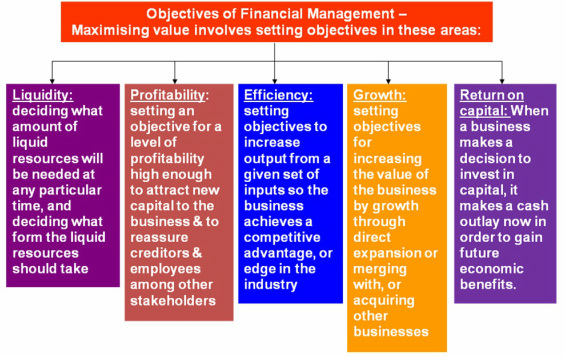Role of Financial Manager

Introduction to Financial Management

The role of a financial manager is crucial in any organization, as they are responsible for overseeing and managing the financial activities of the company. Financial managers play a vital role in ensuring the financial stability and growth of the organization. They are involved in making strategic decisions, managing financial risks, and ensuring that the company’s financial goals are met. In this blog post, we will discuss the role of a financial manager, their responsibilities, and the skills required to be successful in this field.
Responsibilities of a Financial Manager

A financial manager’s responsibilities can be broadly categorized into several areas, including: * Financial planning and budgeting: Developing financial plans and budgets to achieve the company’s goals and objectives. * Financial reporting and analysis: Preparing and analyzing financial reports, such as balance sheets, income statements, and cash flow statements. * Financial management and control: Managing and controlling the company’s finances, including cash flow, investments, and funding. * Risk management: Identifying and managing financial risks, such as market risk, credit risk, and operational risk. * Investment and funding: Making investment decisions and securing funding for the company’s projects and activities.
Skills Required for a Financial Manager

To be successful as a financial manager, one needs to possess a combination of technical, business, and interpersonal skills. Some of the key skills required include: * Financial knowledge and expertise: A strong understanding of financial concepts, principles, and regulations. * Analytical and problem-solving skills: The ability to analyze financial data, identify problems, and develop solutions. * Communication and interpersonal skills: The ability to communicate effectively with stakeholders, including management, employees, and external parties. * Leadership and management skills: The ability to lead and manage teams, including motivating and developing team members. * Technology skills: Proficiency in financial software and systems, including spreadsheet programs, accounting software, and financial modeling tools.
Role of Financial Manager in Decision Making

Financial managers play a key role in decision making, as they provide financial insights and recommendations to support strategic decisions. They are involved in evaluating investment opportunities, assessing financial risks, and developing financial models to forecast future performance. Financial managers must be able to analyze complex financial data, identify trends and patterns, and develop recommendations that align with the company’s goals and objectives.
Challenges Faced by Financial Managers

Financial managers face a range of challenges, including: * Managing financial risks: Identifying and managing financial risks, such as market risk, credit risk, and operational risk. * Meeting financial goals and objectives: Ensuring that the company meets its financial goals and objectives, including revenue growth, profitability, and cash flow. * Staying up-to-date with regulatory changes: Keeping up-to-date with changes in financial regulations, laws, and standards. * Managing stakeholder expectations: Managing the expectations of stakeholders, including shareholders, employees, and customers. * Developing and implementing financial strategies: Developing and implementing financial strategies that align with the company’s goals and objectives.
💡 Note: Financial managers must be able to adapt to changing market conditions, regulatory requirements, and stakeholder expectations.
Future of Financial Management

The role of financial management is evolving rapidly, driven by advances in technology, changes in regulatory requirements, and shifts in stakeholder expectations. Financial managers must be able to navigate these changes and develop new skills and competencies to remain relevant. Some of the key trends shaping the future of financial management include: * Digitalization and automation: The use of digital technologies, such as artificial intelligence, blockchain, and cloud computing, to automate financial processes and improve efficiency. * Big data and analytics: The use of big data and analytics to provide insights and recommendations that support strategic decisions. * Sustainability and social responsibility: The integration of sustainability and social responsibility into financial decision making, including the consideration of environmental, social, and governance (ESG) factors.
| Financial Management Function | Traditional Approach | Modern Approach |
|---|---|---|
| Financial planning and budgeting | Manual processes, spreadsheets | Automated tools, cloud-based software |
| Financial reporting and analysis | Paper-based reports, manual analysis | Digital reports, data analytics, visualization tools |
| Financial management and control | Manual controls, paper-based processes | Automated controls, digital workflows |

In summary, the role of a financial manager is critical to the success of any organization. Financial managers must possess a combination of technical, business, and interpersonal skills to be successful in this field. They must be able to navigate the challenges of financial management, including managing financial risks, meeting financial goals and objectives, and staying up-to-date with regulatory changes. As the field of financial management continues to evolve, financial managers must be able to adapt to changing market conditions, regulatory requirements, and stakeholder expectations.
What are the key responsibilities of a financial manager?

+
The key responsibilities of a financial manager include financial planning and budgeting, financial reporting and analysis, financial management and control, risk management, and investment and funding.
What skills are required to be a successful financial manager?

+
To be a successful financial manager, one needs to possess a combination of technical, business, and interpersonal skills, including financial knowledge and expertise, analytical and problem-solving skills, communication and interpersonal skills, leadership and management skills, and technology skills.
What are the challenges faced by financial managers?

+
Financial managers face a range of challenges, including managing financial risks, meeting financial goals and objectives, staying up-to-date with regulatory changes, managing stakeholder expectations, and developing and implementing financial strategies.



